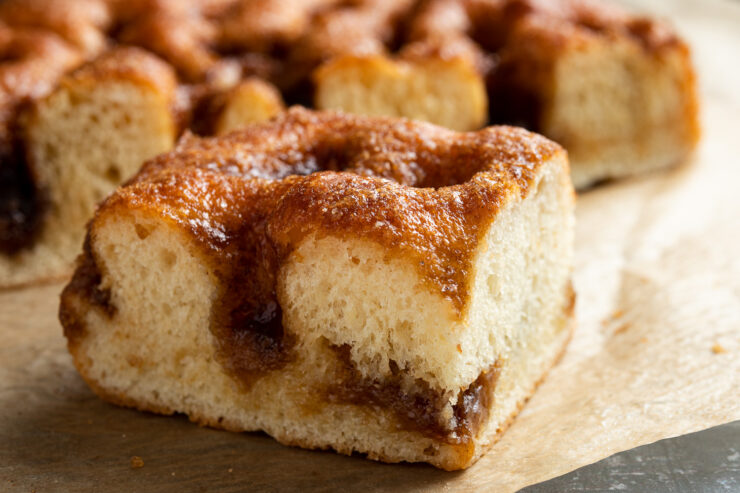
Brunsviger is a yeasted coffee cake covered in a brown sugar topping. The cake is rich, but fluffy, almost like brioche and the topping is like crunchy-gooey caramel. This as a great alternative to cinnamon rolls on cold Sunday mornings.
The History of Brunsviger
Brunsviger originates from the Danish island of Funen, the birthplace of Hans Christian Andersen. While you can now find the cake almost anywhere in Denmark, you’ll find it in almost every bakery in Funen. The cake is often served for Sunday breakfast with coffee. It is also sometimes used for Kagemand or Kagekone, a cake in the shape of a boy or girl eaten for birthdays and anniversaries. It is usually decorated with candy and Danish flags. Birthday parties traditionally start with the Kagemand being decapitated while all the children scream. Now that sounds like a classic fairy tale.
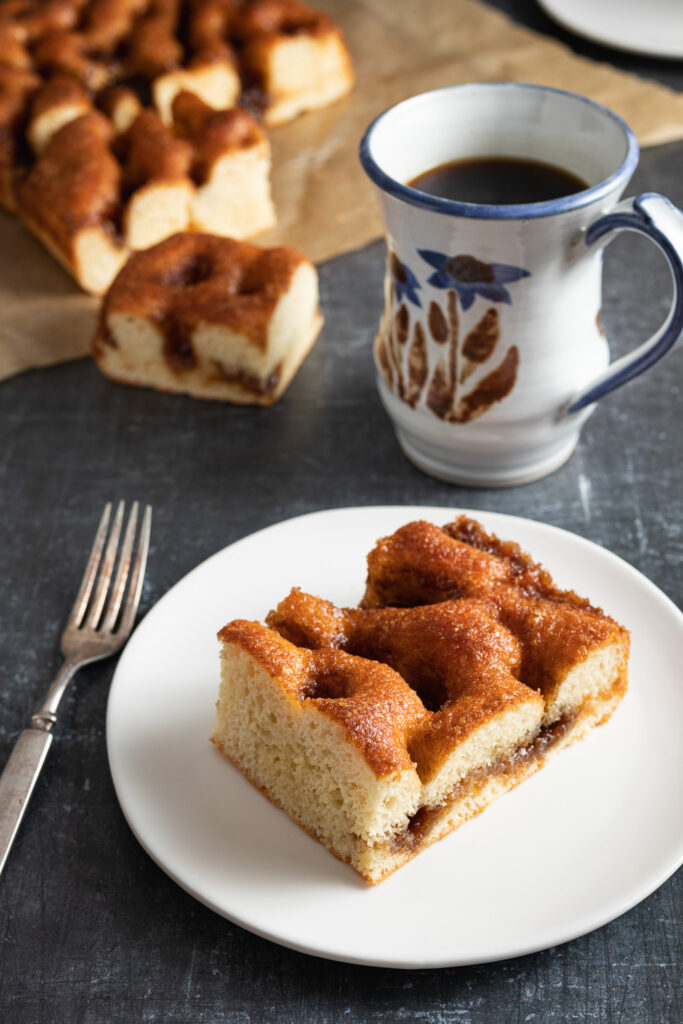
Tips for Baking Brunsviger
The base for this cake is an enriched yeast dough. Enriched doughs include sugar and fat, usually milk, butter or eggs. Fat shortens gluten strands and increases its elasticity. This results in a cake with a more tender crumb and a soft crust. Adding sugar to yeast doughs gives more food to the yeast and speeds up fermentation. Residual sugar promotes browning of the crust during baking and a sweeter dough.
I’ve kept the recipe for the topping pretty simple: dark brown sugar and butter. But I have seen versions which include various flavorings as well. You could add cinnamon, cream, honey, marzipan or even a packet of Danish Kagecreme, if you can find it.
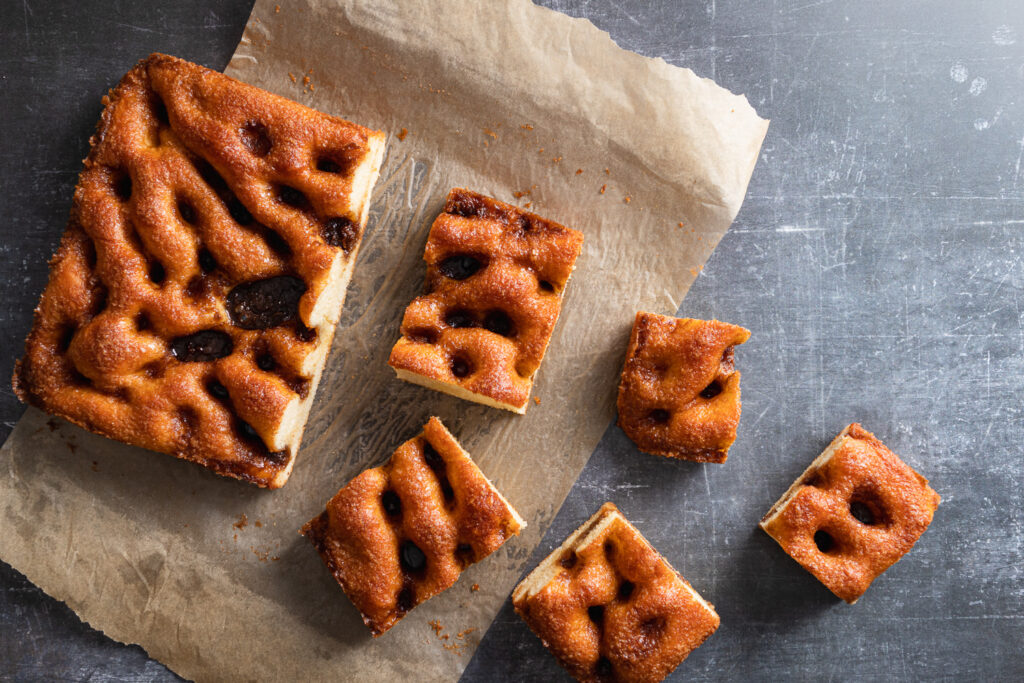
Ingredients:
Yields one 9 x 12 inch (23 x 33 cm) pan.
For the Dough:
240ml whole milk, warmed to 40°C
7g dry active yeast (1 packet)
50g granulated sugar
1 large egg
1/2 teaspoon salt
420g plain flour
85g unsalted butter, melted
TOPPING
215g dark brown sugar
170g unsalted butter
1 cup whole milk, warmed to 105°F
2 1/4 teaspoons dry active yeast
1/4 cup granulated sugar
1 large egg
1/2 teaspoon salt
3 1/2 cups all-purpose flour
6 tablespoons unsalted butter
TOPPING
1 cup dark brown sugar
3/4 cup unsalted butter
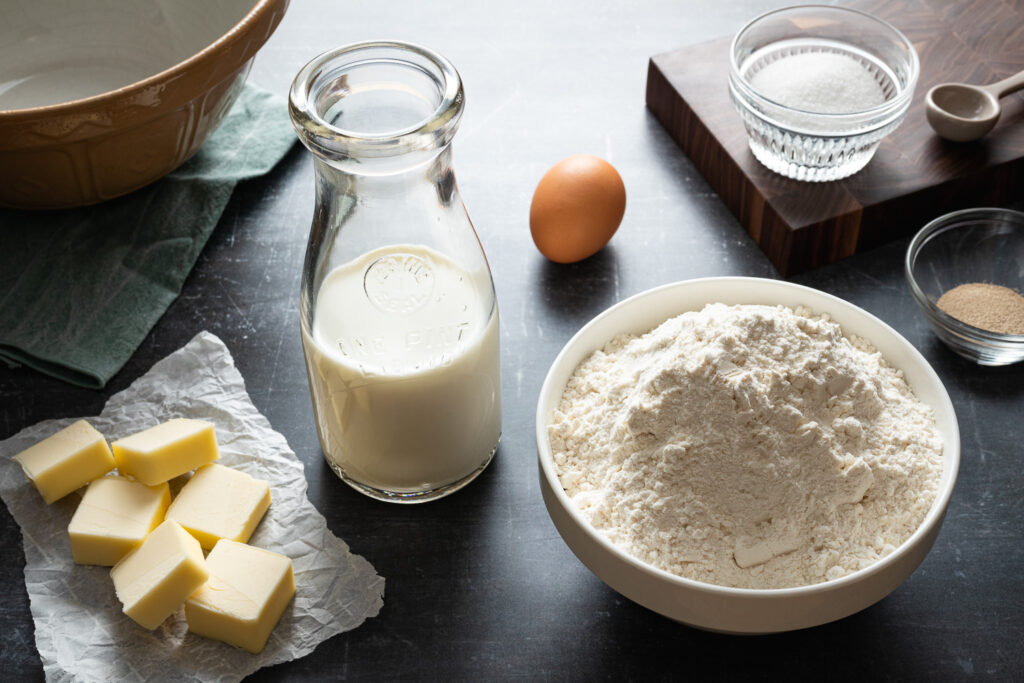
Bloom the yeast:
In the bowl of a stand mixer fitted with a dough hook, mix the yeast and warm milk together and set aside while weighing the other ingredients. The yeast should start to foam after a few minutes, otherwise the yeast might be dead.
Mix the wet ingredients:
Add the sugar, egg, and butter to the milk and yeast. Set the mixer on medium for a few seconds to combine.
Add in the flour:
Add in the flour and salt, and slowly work the mixer up to medium speed. Knead until everything combines, forming a dough.
Knead the dough:
Knead the dough until it is smooth and elastic, approximately 6 minutes.
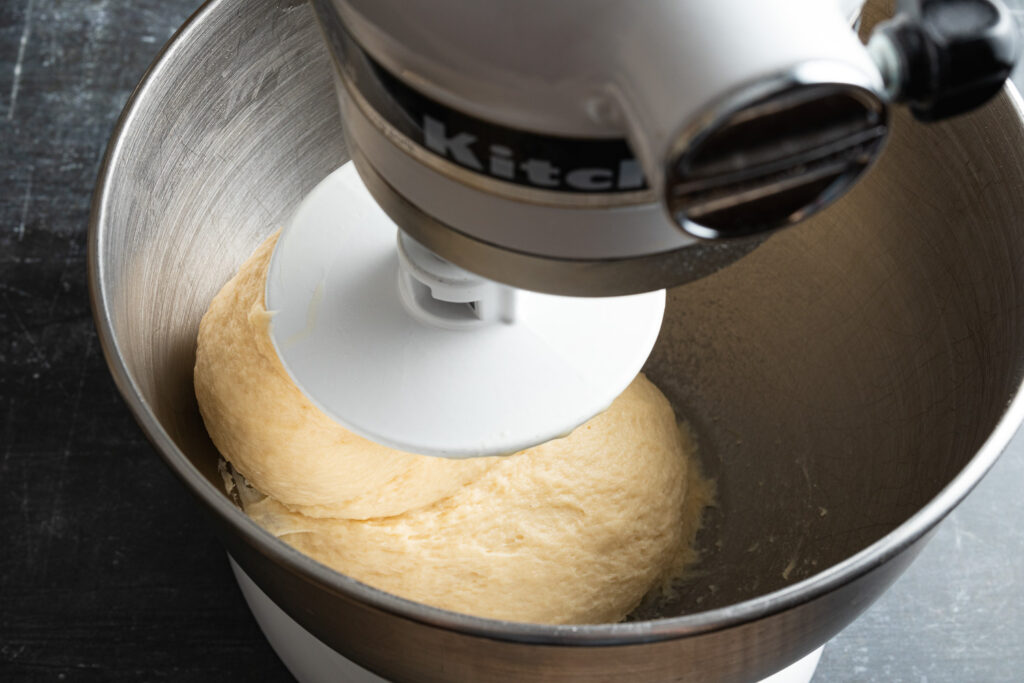
Let the dough rest:
Cover the bowl with plastic wrap or a damp tea towel and set in a warm place to rise for 60 minutes, or until doubled in size.
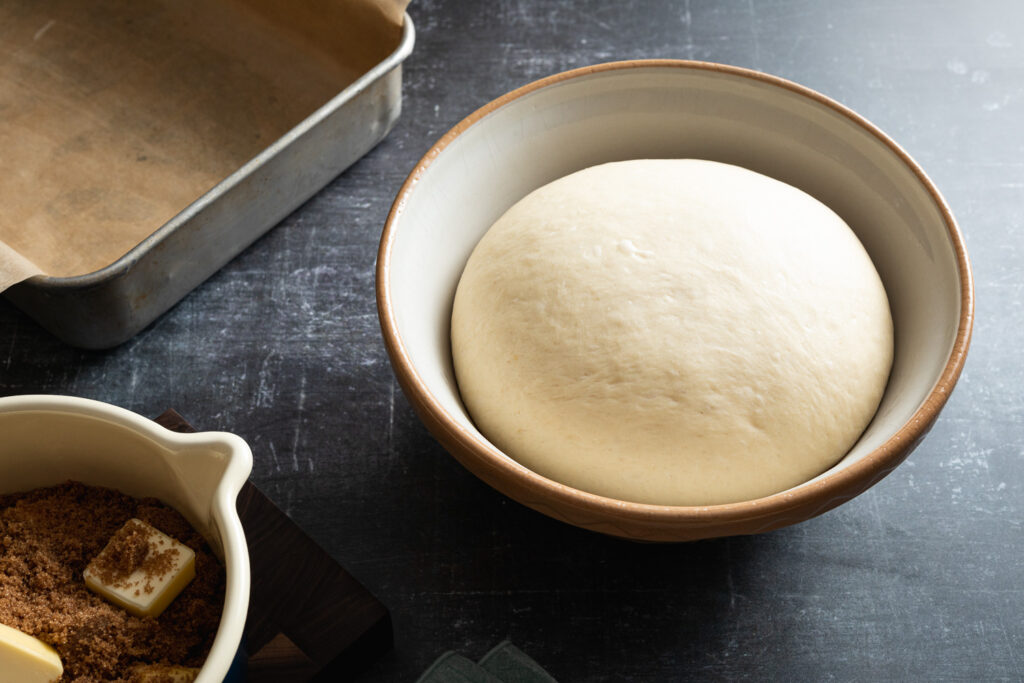
Shape the dough:
Grease a 9 inch by 13 inch pan and line with parchment paper. Transfer the dough to the pan, gently stretching it to the edges of the pan.
Proof:
Set the pan in a warm place and leave the dough to rise until puffy and roughly doubled in size, about 45 minutes.
Prepare the topping:
Meanwhile, melt the butter with the brown sugar in a small saucepan over low heat. Stir frequently to ensure the sugar is fully incorporated into the butter. Set aside to cool slightly.
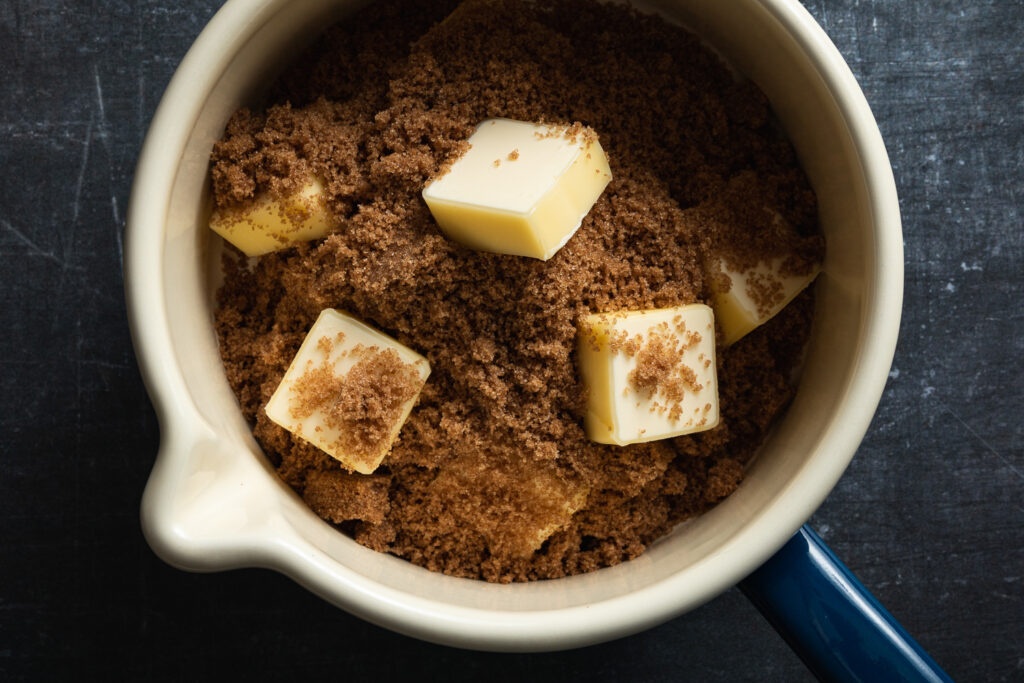
Preheat the oven:
When the dough is almost risen, preheat the oven to 200°C (400°F).
Prepare the dough for baking:
Press your fingers into the dough to form deep dimples. Pour the topping over the dough, being sure to fill the dimples and avoiding the sides of the pan.
Bake the cake:
Bake the cake for 20 to 25 minutes. The dough will be puffed and the topping will be bubbling and gooey.
Let the cake cool and serve warm or at room temperature. Brunsviger is best the day it is made.

This is delicious and SO easy! Make this cake!
(I used salted butter bc it’s what I had and I like salt, and it was perfect. Also added some cinnamon to the topping. Follow your heart bc this recipe is simple, easy, and delicious.)
Thank you so much Sam! I can totally see salted butter working a bit like salted caramel. I also like to add cinnamon and or cardamom sometimes too!
I’m 9 months pregnant and I needed(!) this lil cake. It just came out of the oven. It’s delightful. It’s light. I’d say there was a little bit of a translation error on my part (American) and I think my butter to sugar ratio for the topping was a little sugar heavy. I did 12 tbs butter with about a cup of brown sugar. It’s still good just a tad gritty which is not even terrible. I may spend more effort next time to more effectively and accurately get those measurements correct but I will be making this again.
I’m so glad you enjoyed this! It may seem off if you’re looking for a perfectly smooth brown sugar sauce. But if there are pools of smooth sauce inside the dimples and crisp areas on the peaks then it’s perfect! But definitely adjust it to how you like it. You can reduce the amount of sugar if you’d like it smoother. Happy Baking!
This looks so good! What a great combination of flavors!
Thanks so much, Suzanne! Happy Baking!